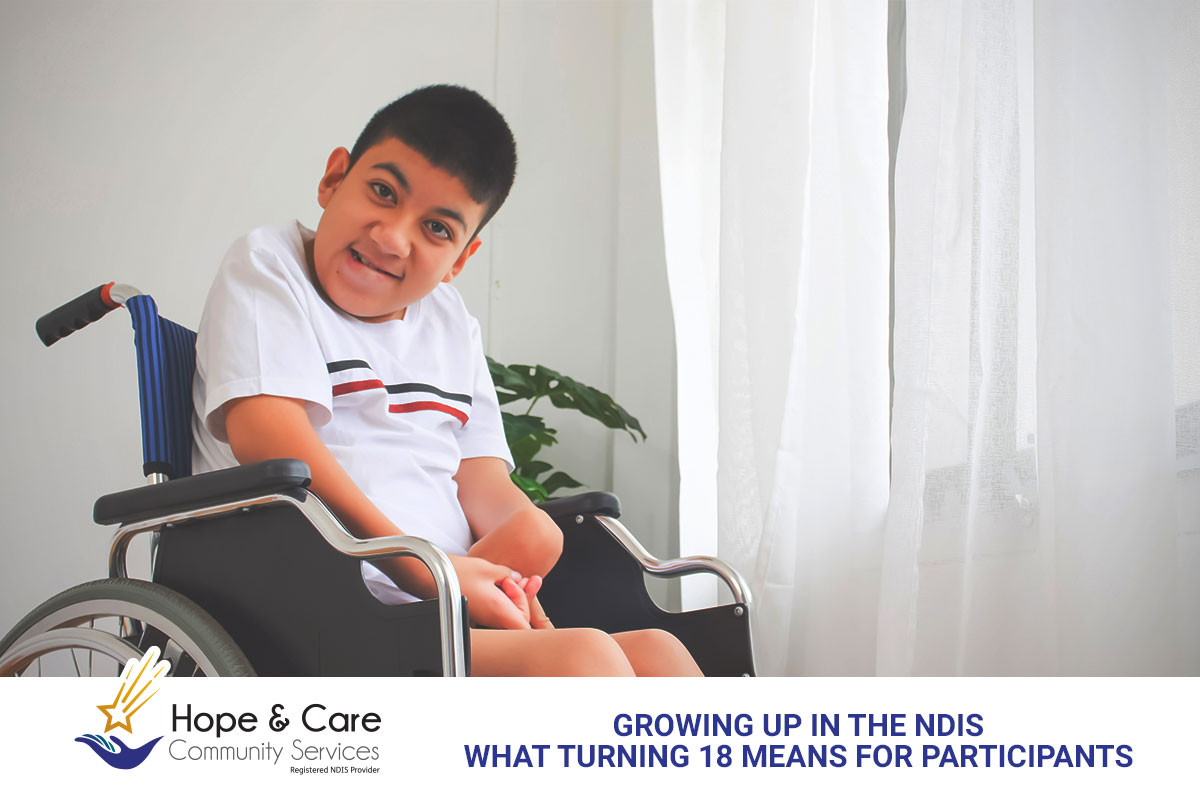
Turning 18 in NDIS is one of life’s biggest milestones. For most young people, it means becoming an adult with the right to vote, apply for a Medicare card and take control of important life decisions.
For NDIS participants, turning 18 also brings specific changes to the way the NDIS plan works. Families need to prepare in advance so the participant can smoothly transition into adulthood, while keeping the right supports in place.
This article explains what NDIS turning 18 means, how the NDIS transition works and the key steps participants and families can take to prepare.
What Happens in the NDIS When You Turn 18?
When a participant is under 18, parents or guardians usually act as child representatives. They make decisions, manage NDIS funding and coordinate supports.
However, when the participant turns 18, this arrangement ends automatically. The participant becomes legally responsible for their own NDIS plan.
The National Disability Insurance Agency (NDIA) usually contacts families about three months before the 18th birthday. This early contact gives everyone time to prepare and understand the changes.
If the participant still wants support, they can nominate a trusted person. The NDIA offers two types of nominee roles:
- Correspondence nominee – manages communication and administration but not funding.
- Plan nominee – manages budgets, service providers and all decisions within the NDIS plan.
If the participant cannot make decisions independently, even with support, the NDIA may appoint a nominee on their behalf.
This is one of the most important parts of NDIS turning 18, because it marks the shift from parent-led decisions to participant-led independence.
Planning Ahead: Updating Goals for Adulthood
Turning 18 is not just a legal milestone; it is a chance to plan for the future. Families should encourage participants to update their NDIS goals so the plan reflects adult priorities.
Possible goals and changes to consider include:
- Starting work or exploring career opportunities
- Continuing education or vocational training
- Volunteering to build skills and confidence
- Moving into Supported Independent Living (SIL) or exploring housing options
- Expanding community participation and social networks
- Travelling, learning new skills or pursuing hobbies
For example, if a participant wants to explore employment, they may benefit from job-readiness workshops or disability employment programs that connect them with employers.
Therefore, planning ahead ensures the NDIS plan provides the right supports for adulthood, rather than remaining focused on childhood goals.
Supported Decision-Making: Encouraging Independence
One of the key changes at 18 is decision-making. Participants gain the right to make their own decisions about services, supports and funding. However, many may feel unsure about handling everything on their own.
This is where supported decision-making plays an important role. With this approach, the participant makes the final choice but receives guidance along the way.
Supporters such as parents, family members or support workers can:
- Explain options clearly
- Offer pros and cons for each choice
- Respect the participant’s decision
This process builds independence and confidence. It also aligns with Australia’s obligations under the United Nations Convention on the Rights of Persons with Disabilities, which protects the right of people with disability to direct their own lives.
By introducing supported decision-making early, families can help participants feel ready for the responsibilities of adulthood.
Administration Tasks Before Turning 18
The transition to adulthood also involves important administrative tasks. Families should start these early to avoid delays.
Create a Personal Email Address
A personal email is essential for setting up myGov, Centrelink and NDIS accounts.
Set Up a myGov Account
Participants must create their own myGov account at 18. This links to services such as Medicare, Centrelink and the NDIS portal. Parents can still be added as nominees if necessary.
Apply for a Medicare Card
At 18, participants should apply for their own Medicare card to manage healthcare independently.
Get Identification Documents
If the participant does not already have a licence or passport, a Proof of Age card is a practical option. Families may also consider applying for a Companion Card, which allows a support worker or carer to attend events without paying for an extra ticket.
Enrol to Vote
Voting becomes compulsory at 18 in Australia. Participants can pre-enrol from 16, but valid identification such as a Medicare card, passport or licence is required.
Completing these tasks ensures the participant is ready for adulthood both legally and practically.
FAQs on NDIS Turning 18
The participant becomes responsible for their own NDIS plan. Parents or guardians stop being child representatives and the participant can choose to manage the plan or appoint a nominee.
Yes. Participants can nominate parents as either a correspondence nominee or a plan nominee, depending on the level of support needed.
They should. Turning 18 is a good time to review and update goals to reflect adult priorities, such as employment, education, housing or community participation.
Participants should set up a personal email, create a myGov account, apply for a Medicare card, secure identification documents and enrol to vote.
It empowers participants to make their own choices while receiving guidance from trusted people, helping them build independence and confidence.
Conclusion
Turning 18 is an exciting milestone. For NDIS participants, it also marks a significant change in how their plan is managed. Families who prepare in advance by updating goals, completing administrative tasks and encouraging supported decision-making help ensure the transition is smooth and empowering. Ultimately, NDIS turning 18 represents the beginning of a new chapter where young people can shape their own future, explore new opportunities and build independence with the right supports in place.
Want to learn more? Read other articles :
- Goal Setting for Teenagers and Young Adults
- NDIS Early Childhood Approach: Support for Kids Under 9
- Foundational Supports: Building Blocks of NDIS Success
HCCS is a registered NDIS provider. Learn more about our services.
♥ We are available in Brisbane! – Our team is just a call away!
